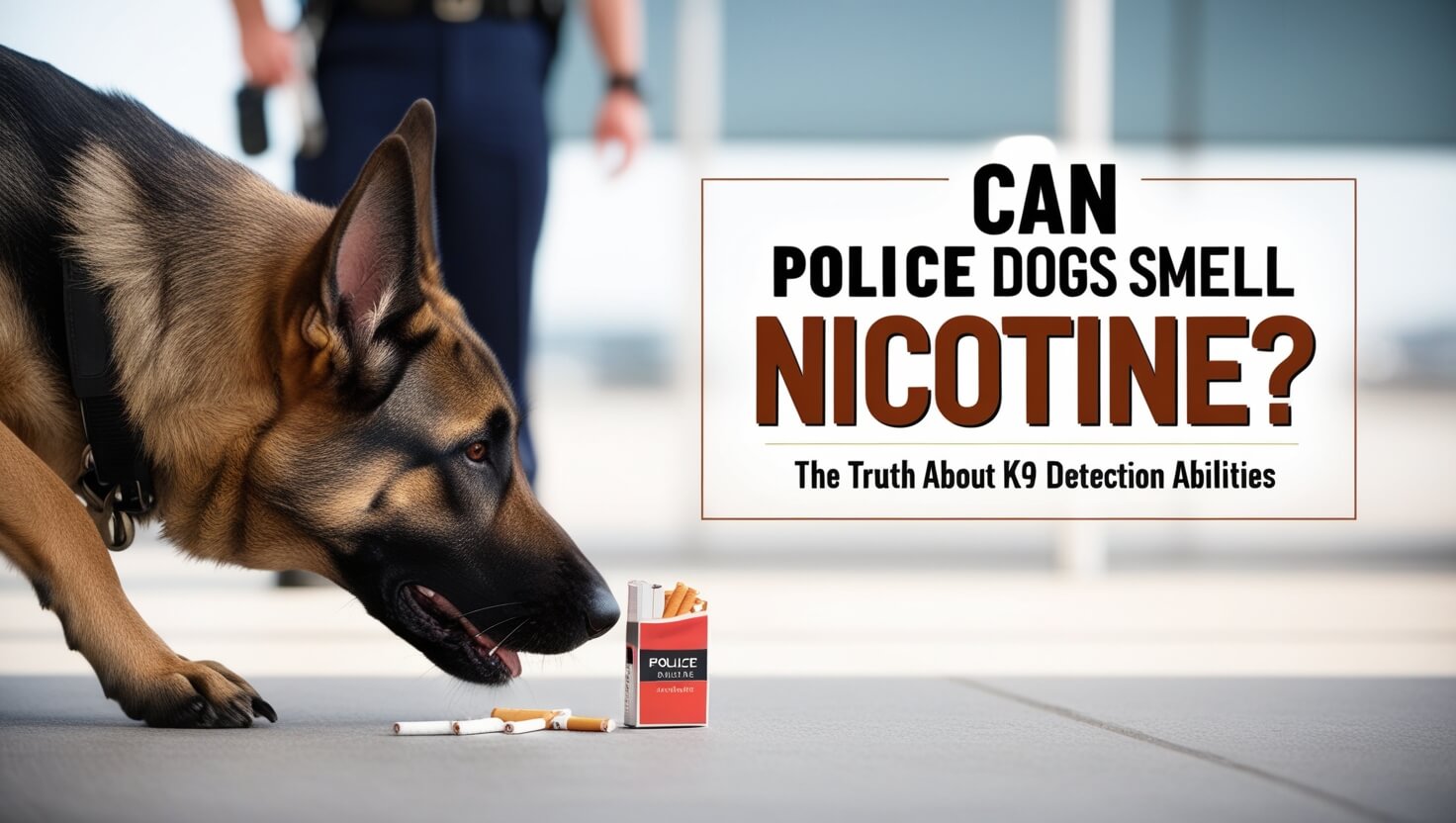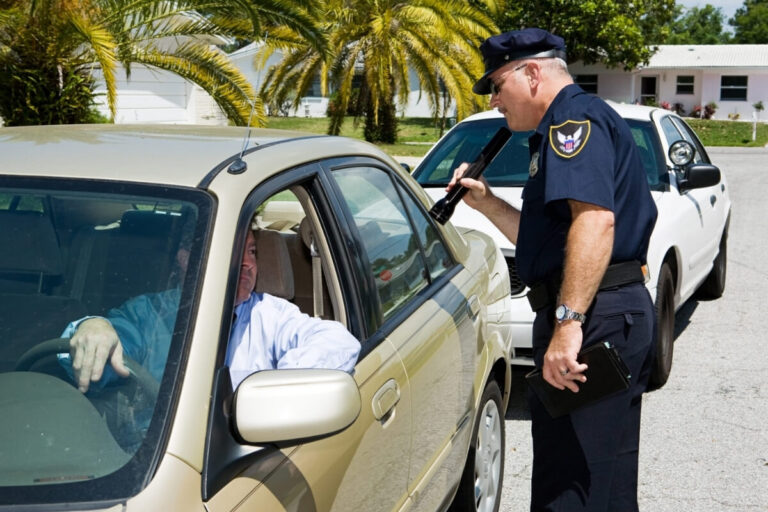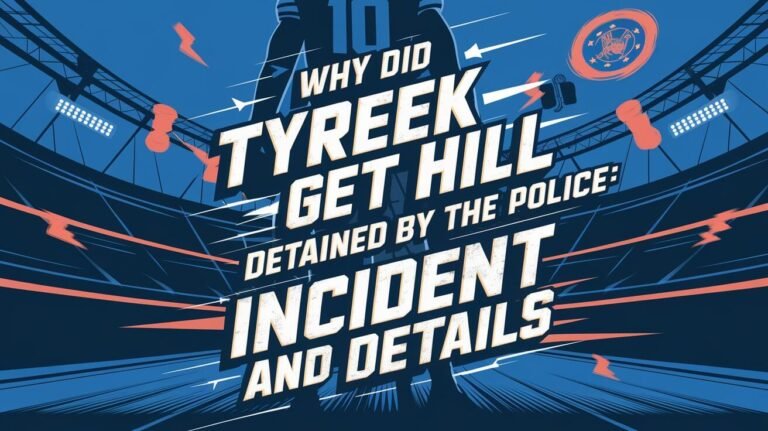Can Police Dogs Smell Nicotine? The Truth About K9 Detection Abilities

Police dogs can indeed smell nicotine, but their ability to do so depends on various factors, including their training and the specific circumstances. This guide explores the fascinating world of canine scent detection, focusing on nicotine and its derivatives.
The Power of a Dog’s Nose
The Remarkable Canine Sense of Smell
Dogs possess an incredible sense of smell that far surpasses human abilities. Their noses are equipped with up to 300 million olfactory receptors, compared to a mere 6 million in humans. This gives them a scent detection capability that’s 10,000 to 100,000 times more powerful than ours.
Police Dogs and Their Specialized Training
Law enforcement agencies worldwide use specially trained dogs, often called K9 units, to detect various substances. These canine officers undergo rigorous training to hone their natural abilities and learn to alert their handlers to specific scents.
Understanding Nicotine Detection in Law Enforcement
Common Substances Police Dogs Are Trained to Detect
Typically, police dogs are trained to sniff out illegal drugs like cocaine, heroin, and methamphetamine. They can also detect explosives, firearms, and even human remains. But what about nicotine?
Is Nicotine on the List? Exploring K9 Capabilities
While nicotine isn’t usually a priority for law enforcement, some agencies do train their dogs to detect it. This is more common in settings like schools, where preventing underage tobacco use is a concern.
The Science Behind Canine Scent Detection
How Dogs Process Smells
Dogs have a unique organ called the vomeronasal organ, which allows them to process scents separately from their breathing. This means they can continuously analyze smells without interruption.
Comparing Human and Canine Olfactory Abilities
To put it in perspective, if humans could see as well as dogs can smell, we’d be able to spot a dime from nearly 3,000 miles away. That’s the distance from New York to Los Angeles!
Training Dogs to Detect Specific Substances
The Process of Scent Imprinting
Training a dog to detect nicotine involves a process called scent imprinting. Trainers introduce the dog to the target scent and reward them for successful identification. This positive reinforcement creates a strong association between the scent and a reward.
Challenges in Training Dogs for Nicotine Detection
Nicotine presents unique challenges for detection. It’s a common substance found in many everyday products, which can lead to false positives. Trainers must work hard to ensure dogs can distinguish between nicotine and similar scents.
Nicotine vs. Tobacco: What Can Police Dogs Actually Smell?
Differentiating Between Nicotine and Tobacco Odors
Dogs trained to detect nicotine can often smell both pure nicotine and tobacco products. However, the scent profile of tobacco is more complex, containing hundreds of compounds besides nicotine.
The Complexity of E-cigarette and Vape Detection
The rise of e-cigarettes and vaping devices has added another layer of complexity to nicotine detection. These products often use flavored liquids that can mask the scent of nicotine, making detection more challenging for dogs.
Legal Considerations: Why Police Dogs May or May Not Detect Nicotine
Priorities in Law Enforcement Substance Detection
Most law enforcement agencies focus their K9 resources on detecting illegal substances. Since nicotine is legal for adults in most places, it’s not typically a high priority for police dogs.
Privacy Concerns and Legal Limitations
Using dogs to detect legal substances like nicotine raises privacy concerns. In many jurisdictions, law enforcement needs probable cause or a warrant to conduct searches, even with dogs.
Real-World Applications: Where Nicotine-Detecting Dogs Are Used
School Campuses and Youth Facilities
Some schools and youth-oriented facilities employ nicotine-detecting dogs to discourage underage tobacco use. These dogs can search lockers, backpacks, and common areas for hidden tobacco products.
Workplaces and Public Spaces
In certain workplaces with strict no-smoking policies, nicotine-detecting dogs might be used to enforce rules. However, this practice is relatively rare due to privacy concerns and the widespread availability of other detection methods.
The Effectiveness of Nicotine-Detecting Dogs
Success Rates and Reliability
When properly trained, dogs can be highly effective at detecting nicotine. Studies have shown success rates of up to 90% in controlled environments. However, real-world conditions can impact this accuracy.
Factors Affecting Scent Detection Accuracy
Several factors can influence a dog’s ability to detect nicotine accurately:
- Environmental conditions (wind, temperature, humidity)
- Presence of other strong odors
- The dog’s health and fatigue level
- Handler influence and bias
Myths and Misconceptions About Police Dogs and Nicotine
Common Beliefs vs. Scientific Facts
Many people believe that all police dogs can detect any substance, including nicotine. In reality, dogs are trained for specific scents, and not all are trained to detect nicotine.
Debunking Popular Internet Claims
You might have read online that hiding tobacco products in coffee or using certain sprays can fool drug-sniffing dogs. These claims are largely myths. A well-trained dog can detect target scents even when mixed with strong-smelling substances.
Alternative Methods for Detecting Nicotine Use
Technological Solutions
While dogs are effective, there are other ways to detect nicotine use:
- Cotinine tests (urine, blood, or saliva)
- Breath analyzers
- Air quality monitors
Human Observation Techniques
Trained personnel can often spot signs of nicotine use through behavioral cues and physical symptoms. This method is less invasive but also less reliable than canine or technological detection.
The Future of Canine Nicotine Detection
Evolving Training Methods
As our understanding of canine cognition grows, training methods for nicotine detection are becoming more sophisticated. Researchers are exploring ways to make training more efficient and accurate.
Potential Advancements in Scent Detection Technology
While dogs remain highly effective, scientists are developing electronic “noses” that might one day rival canine abilities. These devices aim to mimic the sensitivity of a dog’s nose using advanced sensors and AI.
Ethical Considerations in Using Dogs for Nicotine Detection
Animal Welfare Concerns
Using dogs for nicotine detection raises ethical questions about animal welfare. Critics argue that it exposes dogs to potentially harmful substances and stressful working conditions.
Balancing Public Health and Individual Privacy
The use of nicotine-detecting dogs, especially in schools or workplaces, sparks debates about the balance between public health concerns and individual privacy rights.
Conclusion: The Complex Reality of Canine Nicotine Detection
Summarizing Key Points
Police dogs can indeed smell nicotine, but whether they’re trained to do so depends on the specific needs of law enforcement agencies and other organizations. While highly effective, the use of dogs for nicotine detection comes with legal, ethical, and practical considerations.
The Ongoing Role of Police Dogs in Substance Detection
As technology advances, the role of police dogs in substance detection, including nicotine, continues to evolve. Their incredible olfactory abilities make them valuable assets in various detection scenarios, but their use must be balanced with legal and ethical considerations.
The world of canine scent detection is fascinating and complex. From the incredible biology of a dog’s nose to the intricate training processes and real-world applications, the ability of police dogs to smell nicotine showcases the remarkable bond between humans and canines. As we continue to explore and understand these abilities, we’re sure to uncover even more amazing facts about our four-legged partners in law enforcement and public health.






